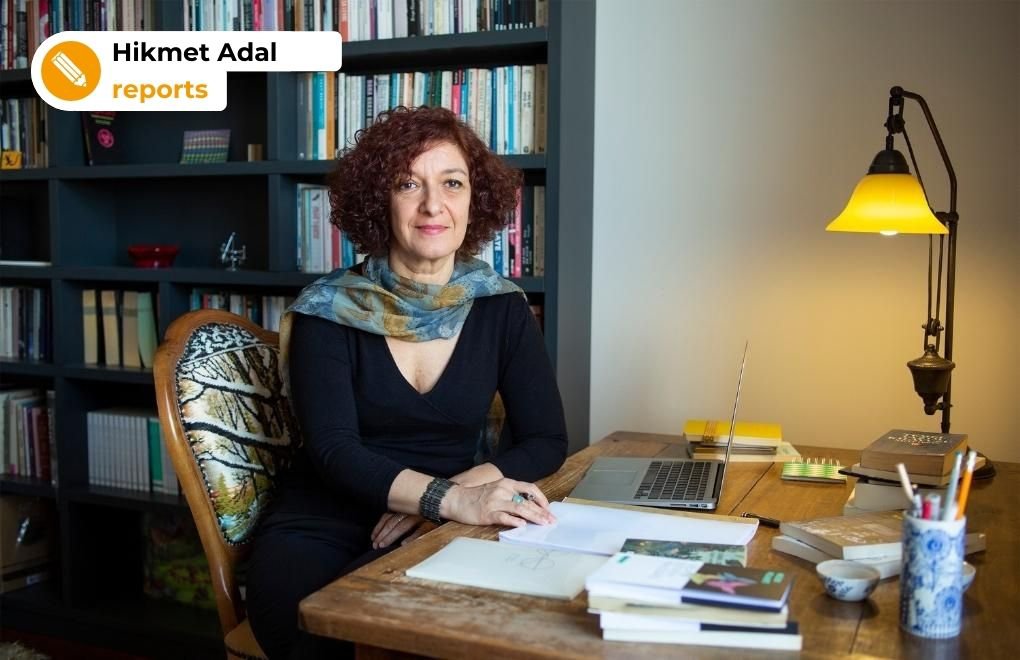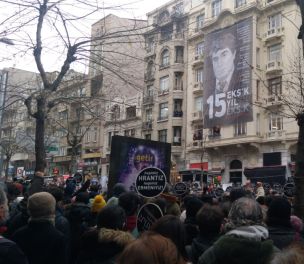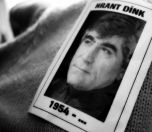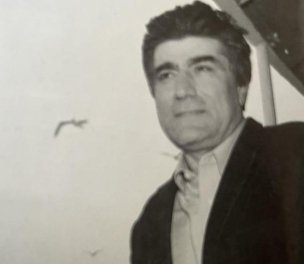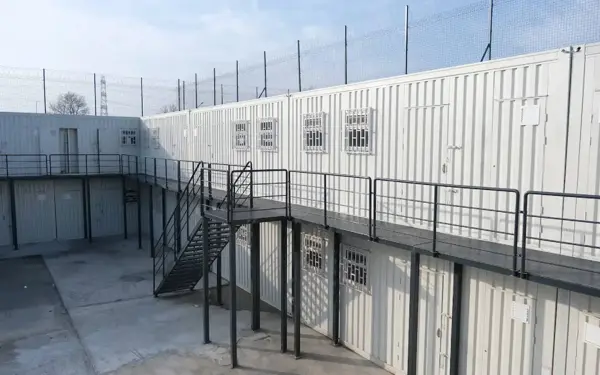Click to read the article in Turkish / Kurdish
It has been 15 years since Agos newspaper's founder and editor-in-chief Hrant Dink was killed in a racist murder in the middle of the street in İstanbul on January 19, 2007. Accordingly, the theme of this year's commemoration ceremonies is "15 missing years."
For the past 15 years, lawsuits have been filed; they have been merged and closed. However, in the process from 2007 to 2022, the murder has not been fully solved. Hrant Dink has become a symbol of seeking justice in this country over the years since his passing.
We listen to Gaye Boralıoğlu, one of Hrant's Friends, about the 15 years that have passed since then...
'They wanted to destroy a hope'
Let's start here if you like... It has been 15 years. How was it for you 15 years ago today? What did you feel about Hrant's murder?
I remember that day very well. A huge dark cloud came upon us. As it is the case in Marquez's novel Red Monday, the disaster happened before the eyes of all of us. We could not prevent it. We all froze. We went in front of Agos like lost souls without talking to one another. There were tens of thousands of us. We knew the whole process; it was approaching step by step, but we could not do anything.
The day when Hrant was killed is one of the darkest days in Turkey's history. And one of the reasons why it has left such a deep mark in our memories is our heartache for being unable to protect him.
The theme of this year's commemoration ceremonies is "15 missing years"? What do you think has been missing for all these years? How have these 15 years passed without Hrant Dink?
Hrant Dink was a possibility. A possibility that differences could live together in this land, that we could understand each other even though we could not get along, that we could heal each other's wounds, that we could apologize and forgive... I mean, in fact, a hope that we could conceive of the future together... They tried to destroy this very hope.
Did they manage to do it? They had better not be so sure. Because something they did not expect much happened. Hrant Dink's mind, belief, courage have spread. Not only to his friends and people around him, but to young generations, to new generations, too... So, we have formed this year's sentence like this: "We multiply more in every missing year!"
'Power holder abstained from facing himself'
What was Hrant Dink's place in your life as a dissident woman and a literary figure? Is there a division in your life like "before" and "after Hrant"? Or has your perspective on life changed with the murder?
I spent my childhood in İstanbul's Bakırköy. I bought my first books from the Beyaz Adam Bookstore. That was how I met Hrant. I mean, he has a place in the traces of my childhood. Then, we came together in various places. I was not very close to him, but I was at a distance where I could sense his energy, the fragility of his soul, but also its strength. I had some film ideas and we were discussing whether we could turn them into a script. As I said before, his death was also a responsibility on my part.
Not only in the sense of expressing the demand for justice so that this horrible murder will be brought to light... I also thought that we had to make visible his words, insistence, and sincerity, if possible. In fact, if Hrant Dink murder had been brought to light as it should be, the ill fate of this country could have changed, too. This was such a critical incident, but the chance is gone. The power holder once again abstained from facing himself.
'The soil of his country that he loved so much...'
The ones who were born 15 years ago today are now young individuals. Or the children of that day are now young adults. What would you tell the young generations about Hrant Dink?
I would fade from the scene and want them to listen to him with his own words, in his own voice. I would try to ensure that they go to the [23.5 Hrant Dink] Site of Memory and watch his world because people like Hrant, who could talk about himself so sincerely and to people of all ages, are hard to find. I would not want to utter a sentence before his words.
Ümit Kıvanç's documentary "Memory Too Low for Words" came out a few days ago. In describing his film, he says, "It is the film of what we could not appreciate." What do you think Turkey failed to appreciate?
When you watch Ümit's documentary, you see the following: There is a person, a good person; this is quite apparent. Novice like a child and as wise as an elder... He is trying to tell people something, he is not after revenge, he does not call people to account, he does not fight.
He wants to be understood, he hopes that people understand each other. He wants to commune with the soil of his country that he loves so much. Despite all that hustle and bustle, he wants to "go deep" in this soil. And the result: A deceased body lying on the ground!
'The state must face, not peoples'
I asked similar questions to Ümit Kıvanç and Bülent Aydın in the previous years. Do you think that Turkey could face the hate crime that killed Hrant Dink today?
The ones who are supposed to face this crime are not Turkey or the peoples of Turkey; the peoples know what is what. It is the state that has to face this. It induced all these anyway. If it had the intention to face it, we would be in a very different situation now.
Every January 19, we commemorate, remember and make people remember Hrant Dink. But would remembering and making people remember Hrant bring him back? When will justice be served for Hrant Dink and for the ones who walk with him?
Justice is curative; denial makes one sick. Our entire history is full of denials and we cannot live together for this reason, we cannot weather the storm. If the Hrant Dink murder is brought to light in all aspects and if the mechanisms, not people, but mechanisms that we all know are brought to light, it will also somehow guarantee that such murders will not be committed again. It will only then be possible to talk about a climate of peace where a culture of living together flourishes. (HA/SD)





